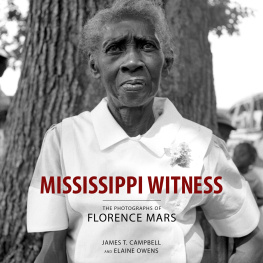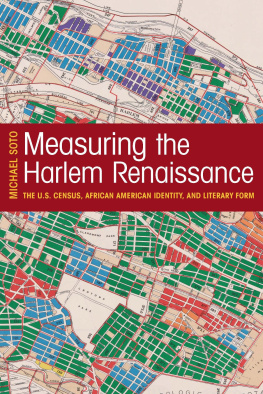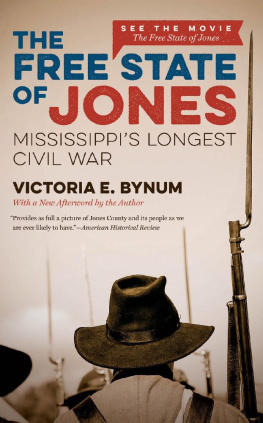www.upress.state.ms.us
The University Press of Mississippi is a member of
the Association of American University Presses.
Copyright 2017 by University Press of Mississippi
All rights reserved
Manufactured in the United States of America
First printing 2017
Library of Congress Cataloging-in-Publication Data available
ISBN 978-1-4968-1204-9 (hardback)
ISBN 978-1-4968-1205-6 (ebook)
British Library Cataloging-in-Publication Data available
Acknowledgments
I would like to thank my colleague Jason Phillips for his patience and encouragement. He allowed me to tread my own path and was always there to redirect me when I reached dead ends. He always supported me, and I am extremely grateful for his mentoring. I also learned how to be a better historian under the tutelage of Peter Messer. Anne Marshall and Michael Williams gave important advice and insights in the early stages of this project. Other faculty at Mississippi State University played a role in helping me know my potential as a historian: Richard Damms, Mary Barbier, Jim Giesen, and Matthew Hale. The staff members of the Special Collection departments at Mississippi State University and the University of Mississippi provided significant help in locating and suggesting material that helped in the research of this project. The staff at the Mississippi Department of Archives and History was also extremely gracious in helping me navigate their facility and find what sources I needed. I am greatly appreciative to Lynn Shearer and Lisa Williams, who spent their summer reading through the manuscript with a keen eye and making comments and suggestions. Craig Gill and staff at the University Press of Mississippi have been easy to work with and made the process of publication as painless as possible. The presss peer reviewers gave valuable insights, comments, and suggestions to improve the manuscript. I would like to thank my family: my children, Jonathan, Andrew, Anabel, and Stanley. And, of course, Lynda; you are my all and everything.
Your
HERITAGE
Will Still
RemainIntroduction
In December 2009 a groundbreaking ceremony at Jefferson Daviss retirement home, Beauvoir, signaled the beginning of an expansive project to build the Jefferson Davis Presidential Library. Every American president, as you know, has their presidential library, the director of Beauvoir stated in an interview. So we thought that Jefferson Davis is an American president, and he deserved his library. That was the idea, to have a library that had the history of him and his family and the confederate soldier to tell their story and that period in history. In addition to attracting more visitors to Beauvoir, the director hoped the new library and museum would help educate the public that Daviss legacy shouldnt be limited to a fight to preserve slavery. The library, which opened in the summer of 2013, even features a machine in the gift shop that will re-press Lincolns image on the penny into Daviss image.
In an opinion piece for the LA Times, reporter Craig Fehrman noted the absurdity of referring to the Davis library as a presidential library. Fehrman reminded readers that Davis was not exactly an American president. He also noted that the library will offer an impressive rallying point for the Lost Cause, since the Sons of Confederate Veterans provided most of the projects funding. Beauvoirs chairman of the board, and member of the Sons of Confederate Veterans, explained to Fehrman that the rest of the nation treated the South unfairly. He believed the library would help to tell the side of the story that never gets told. Despite the ending of hostilities nearly 150 years ago, some white southerners still desired to rectify their image of the South and embrace the Lost Cause legend.
This book seeks to understand how white Mississippians constructed a harmonizing American and Confederate social identity, and how that identity continues to shape the state. Tracing the evolution of Mississippians social identity beginning in 1850 explains why Mississippians felt the need to create the Lost Cause legend and shaped the way they constructed it. Prior to the bitter debates over the compromise measures in
Social identity refers to how a group perceives itself and its standing within a larger social context. The social identity studied in this book focuses primarily on how Mississippians thought of their place within a national context, whether as Americans, Confederates, or both. According to social theorists, individuals and groups desire to maintain a positive group concept through the incorporation of symbols, labels, ideologies, and shared histories. They usually rely on an out-group to juxtapose their identity against. Oftentimes that juxtaposition results in negatively labeling a group, institution, or people as the other. The sectional conflict, Civil War, and Reconstruction produced several out-groups that Mississippians formed their social identity against. Sometimes these out-groups resided in the state, such as Union soldiers or carpetbaggers, while at other times the out-groups were distant and even abstract, such as generalizations made about northerners or the federal government. Social interaction helped solidify social identity by offering an immediate need to defend or assume a specific identity in opposition to another.
Mississippi provides fertile ground for studying the creation of the Lost Cause legend. Mississippi played a leading role in the sectional conflict, secession, the Civil War, Reconstruction, and the formation of the Lost Cause. During the sectional conflict, Mississippi offered some of the leading voices espousing secession and opposition to any attempts to restrict slavery. When Abraham Lincoln won the election of 1860, secession was all but inevitable with fire-eater governor John Pettus at the helm. Several crucial battles occurred in Mississippi during the war, including the siege of Vicksburg. Mississippi also supplied the Confederate States of America with its only president. Reconstruction witnessed a defiant Mississippi that sought to return to the status quo antebellum. Mississippi also boasted a sizable black population, who, for a brief period, managed to forge their own national identity and steer the state on a path of hoped-for change. Redeemers in the state offered a solution to Republican rule: they used intimidation and violence to disfranchise the black population, eventually establishing Jim Crow laws. Mississippians also led the crusade of the Lost Cause legend and historical writing, which included Jefferson Daviss influential two-volume history of the Confederacy.










